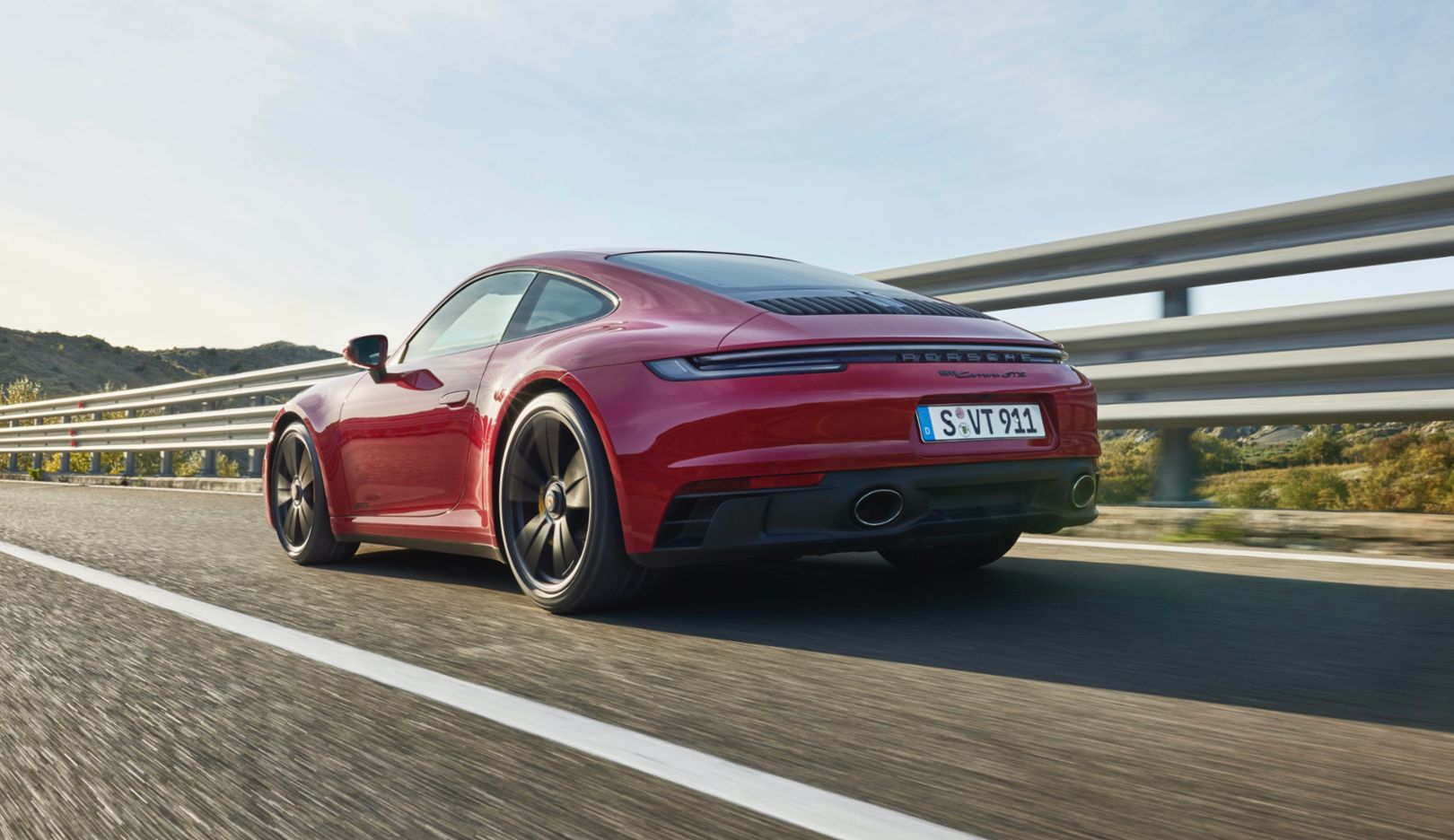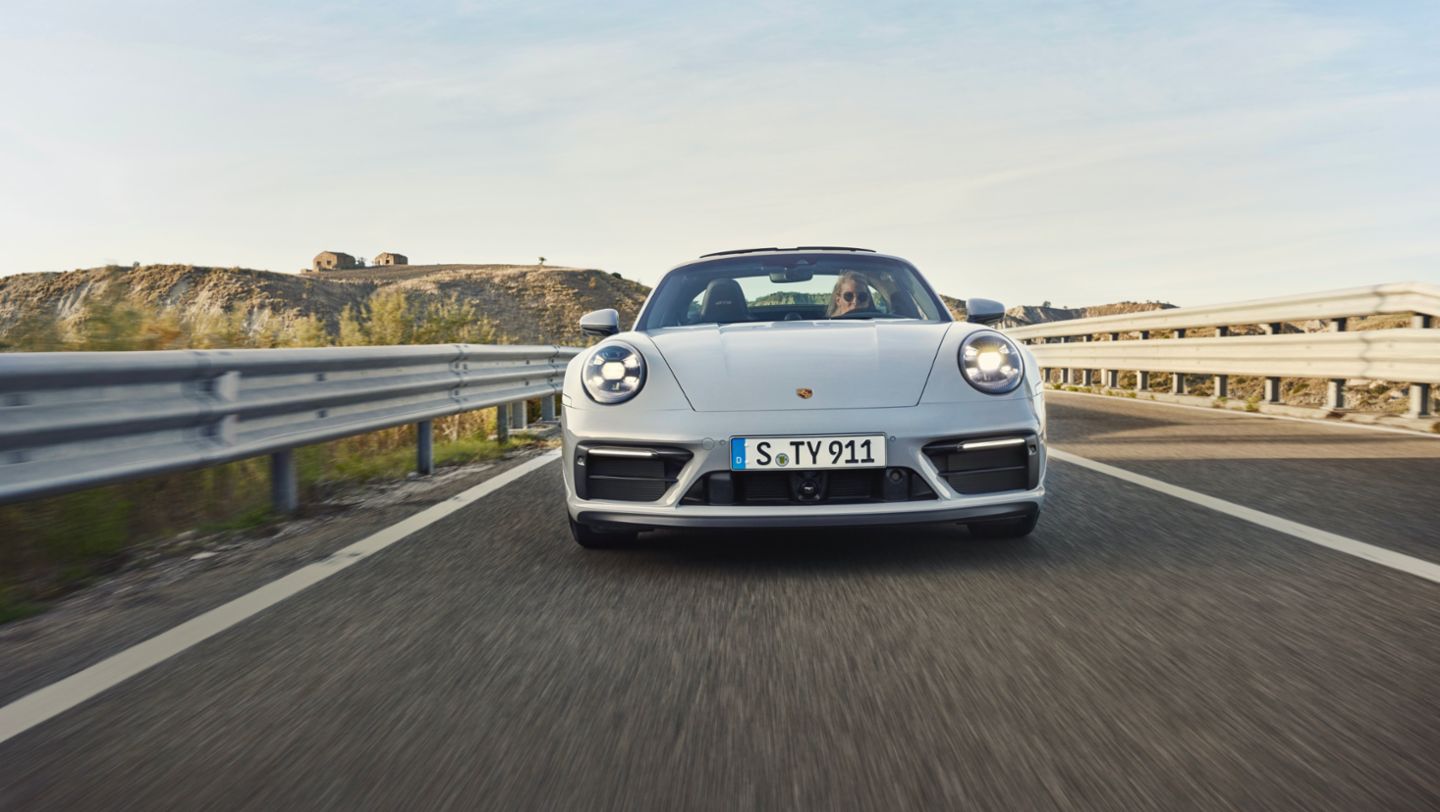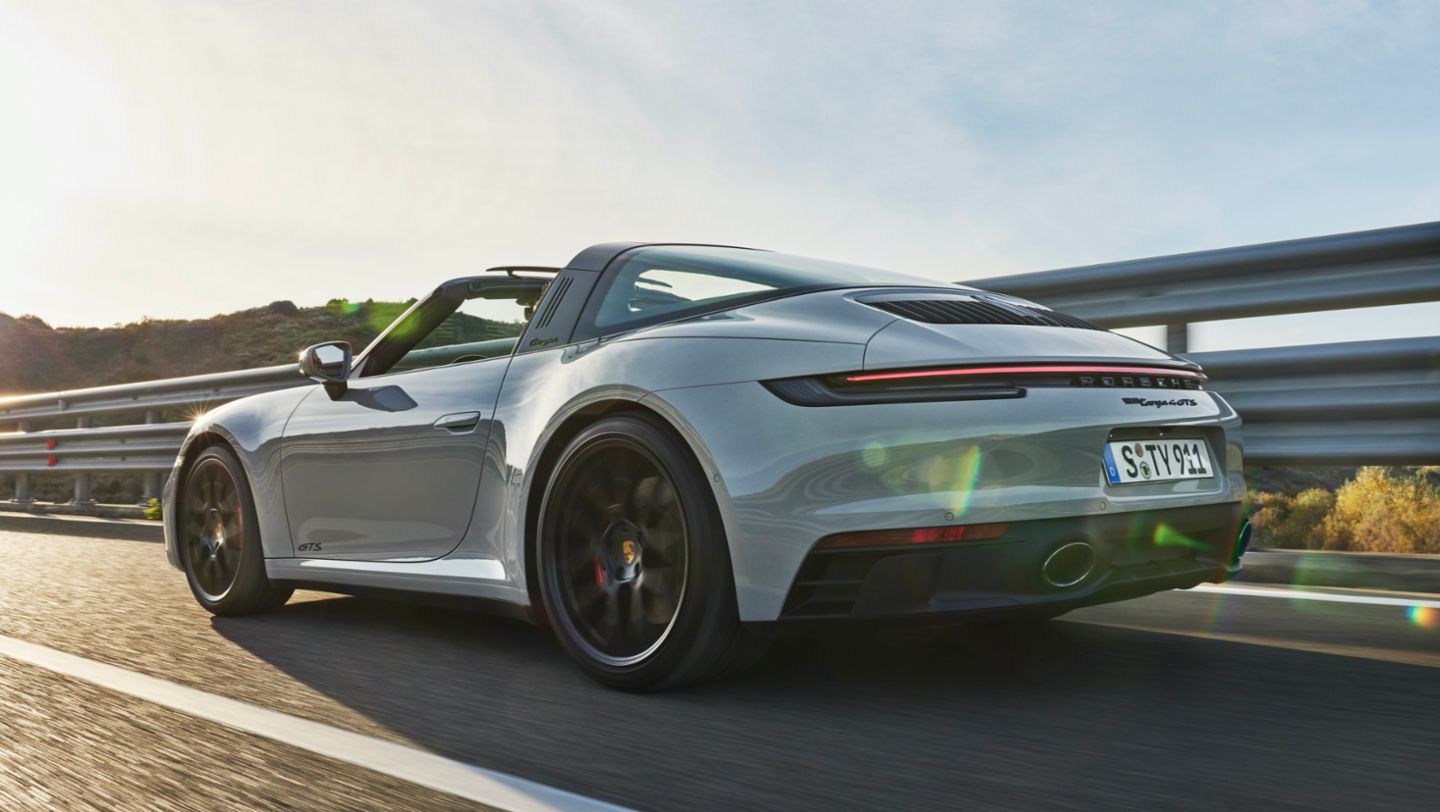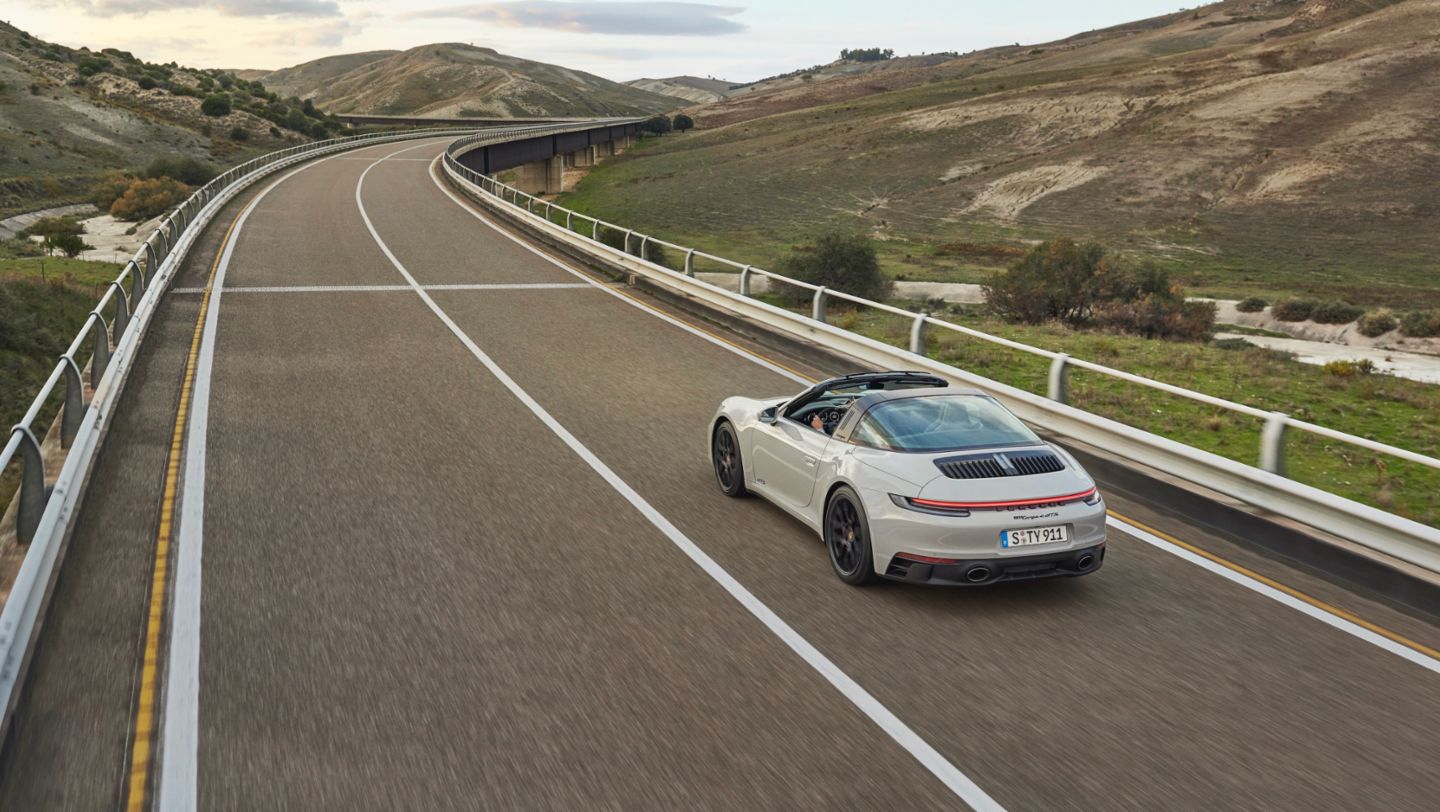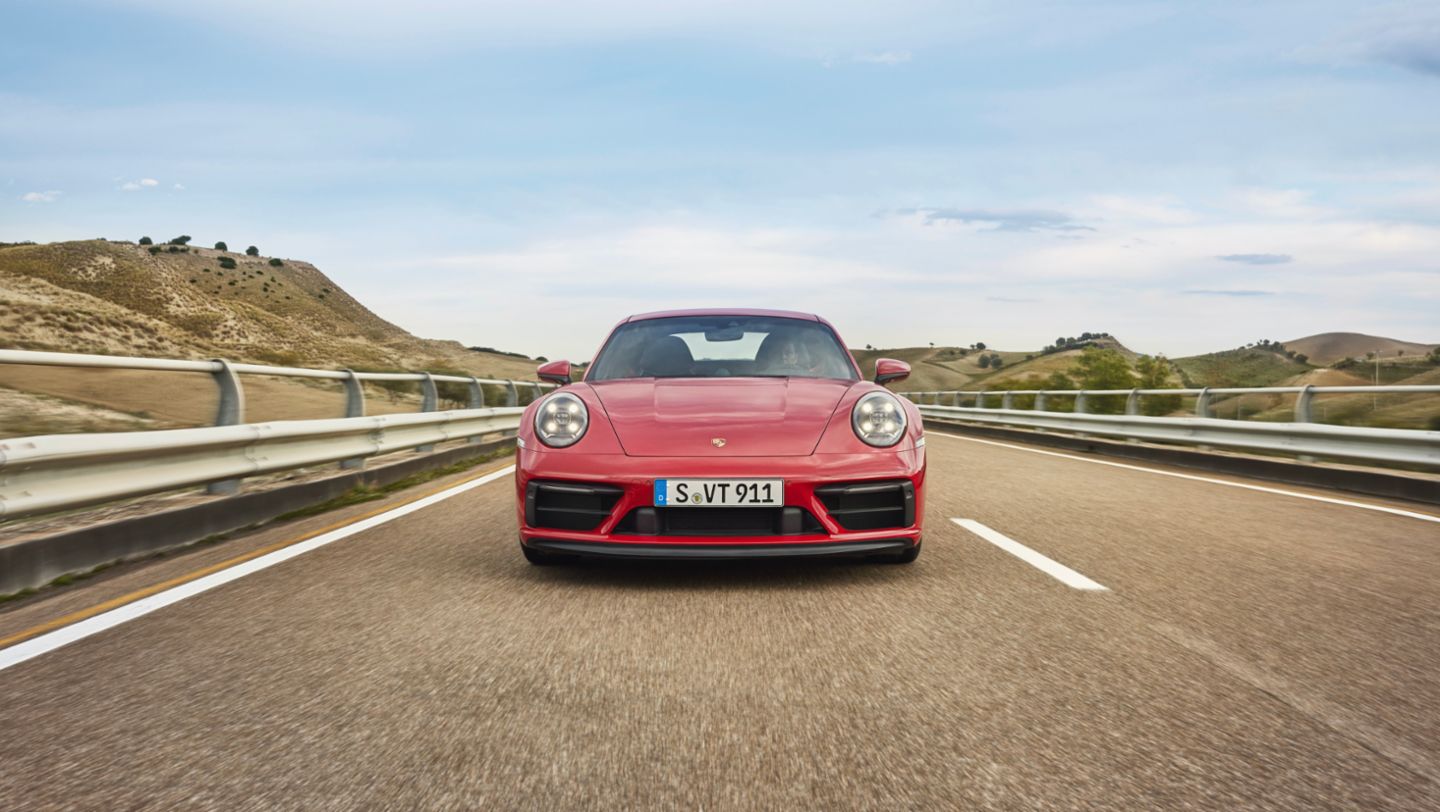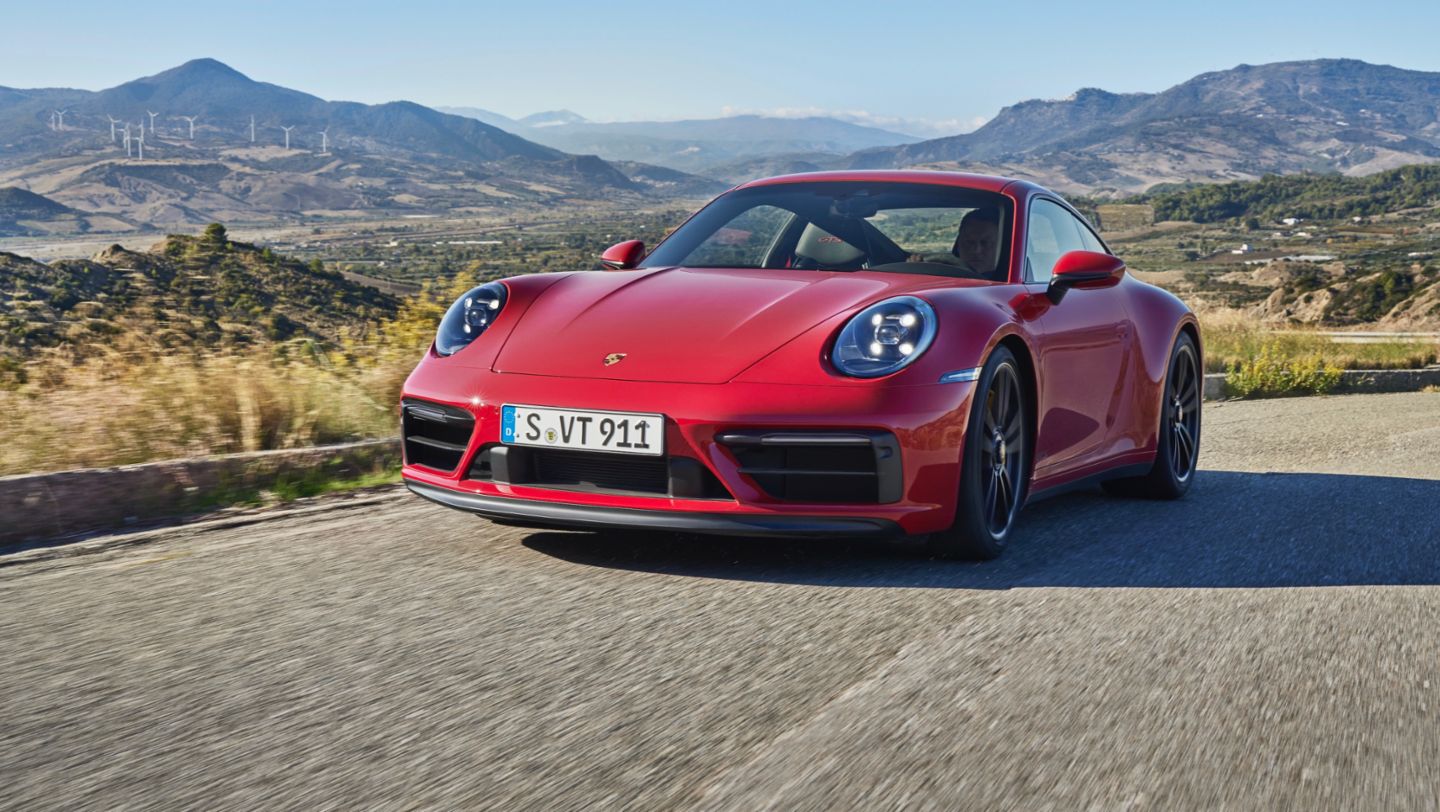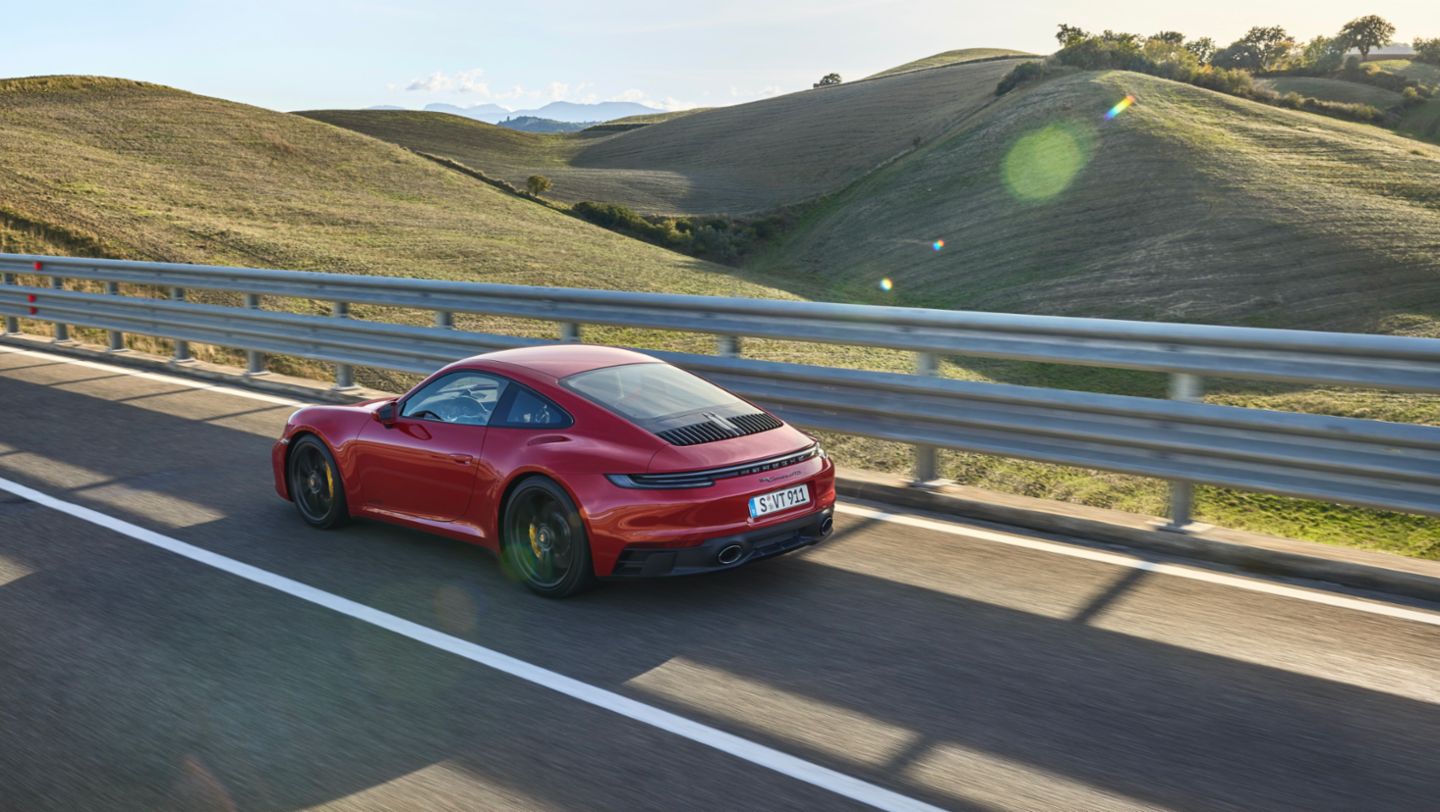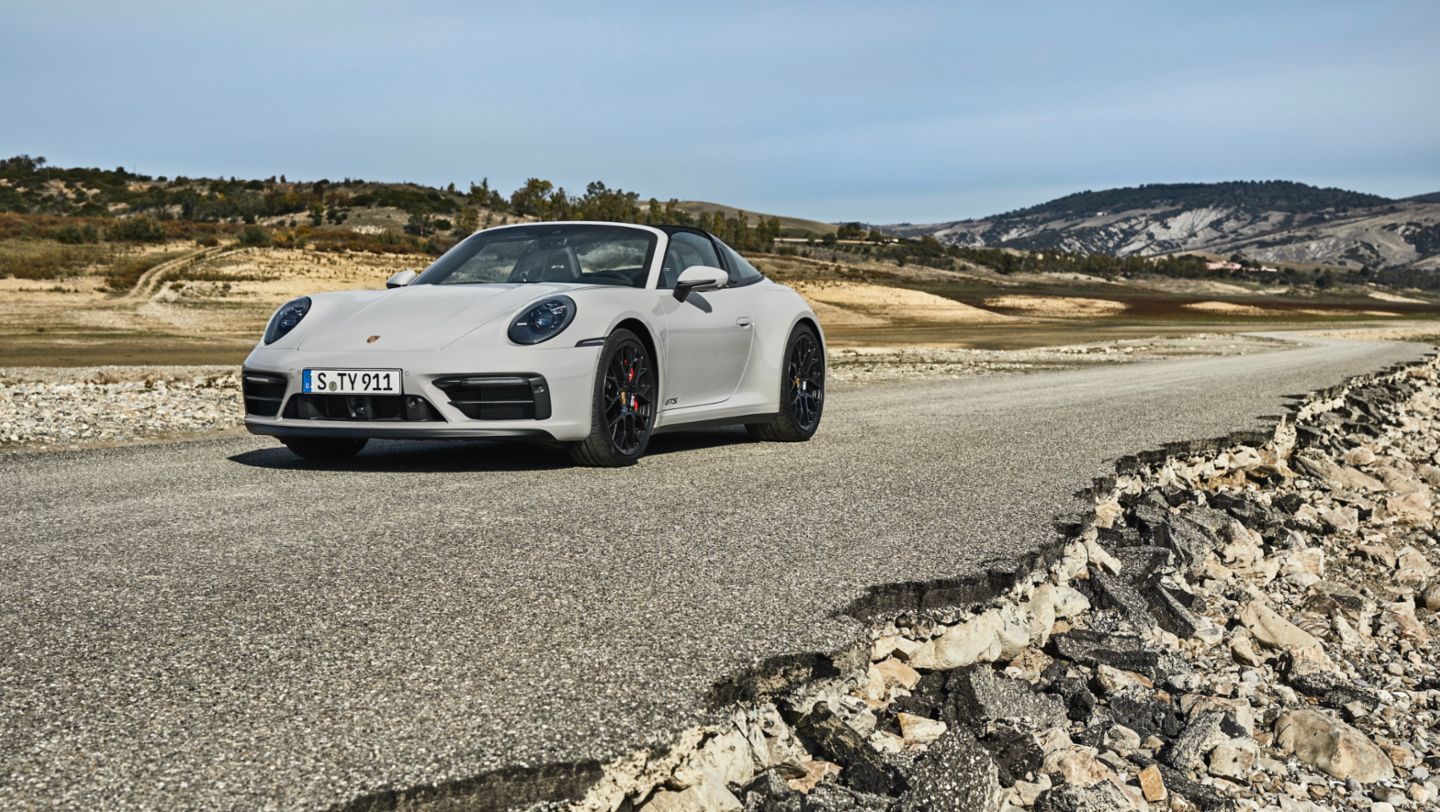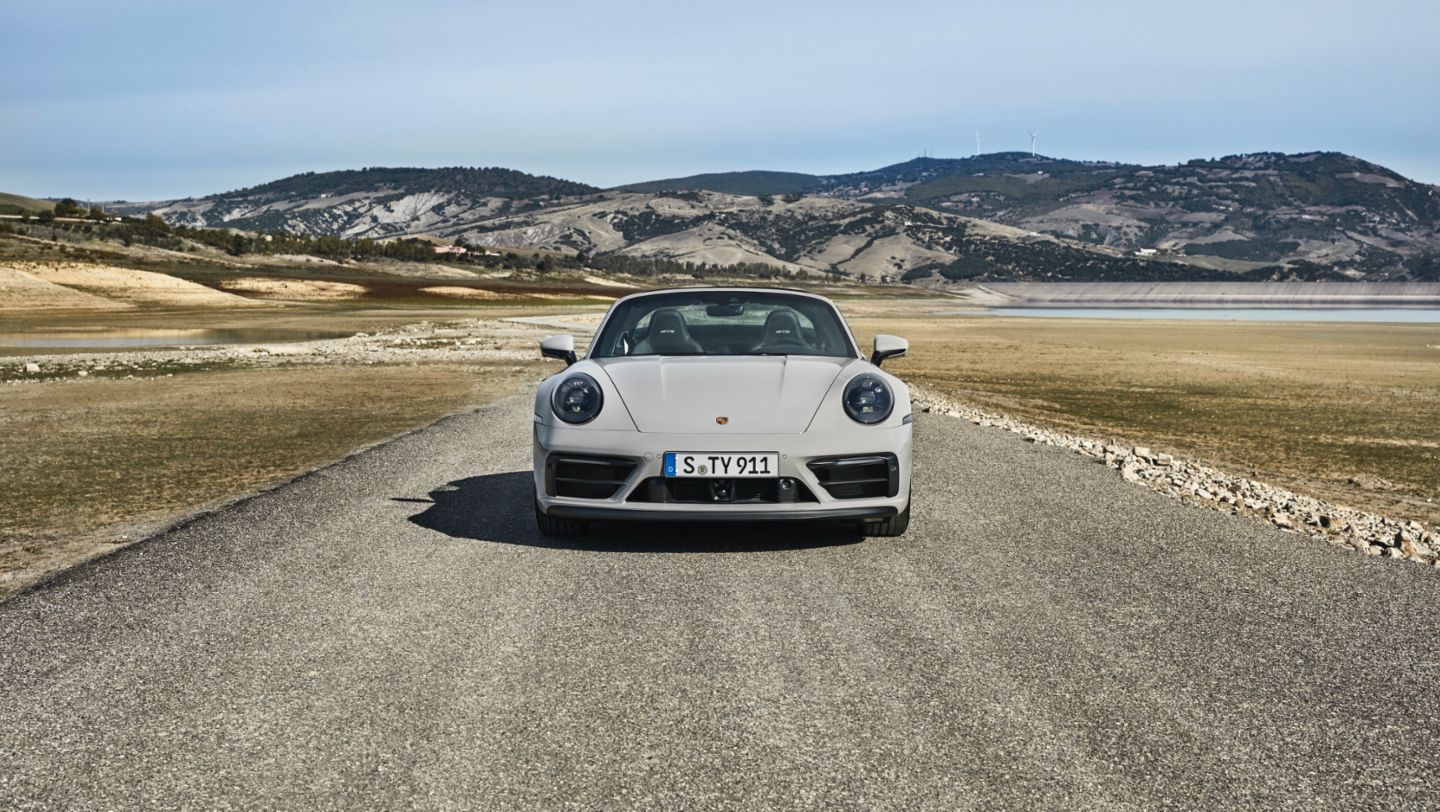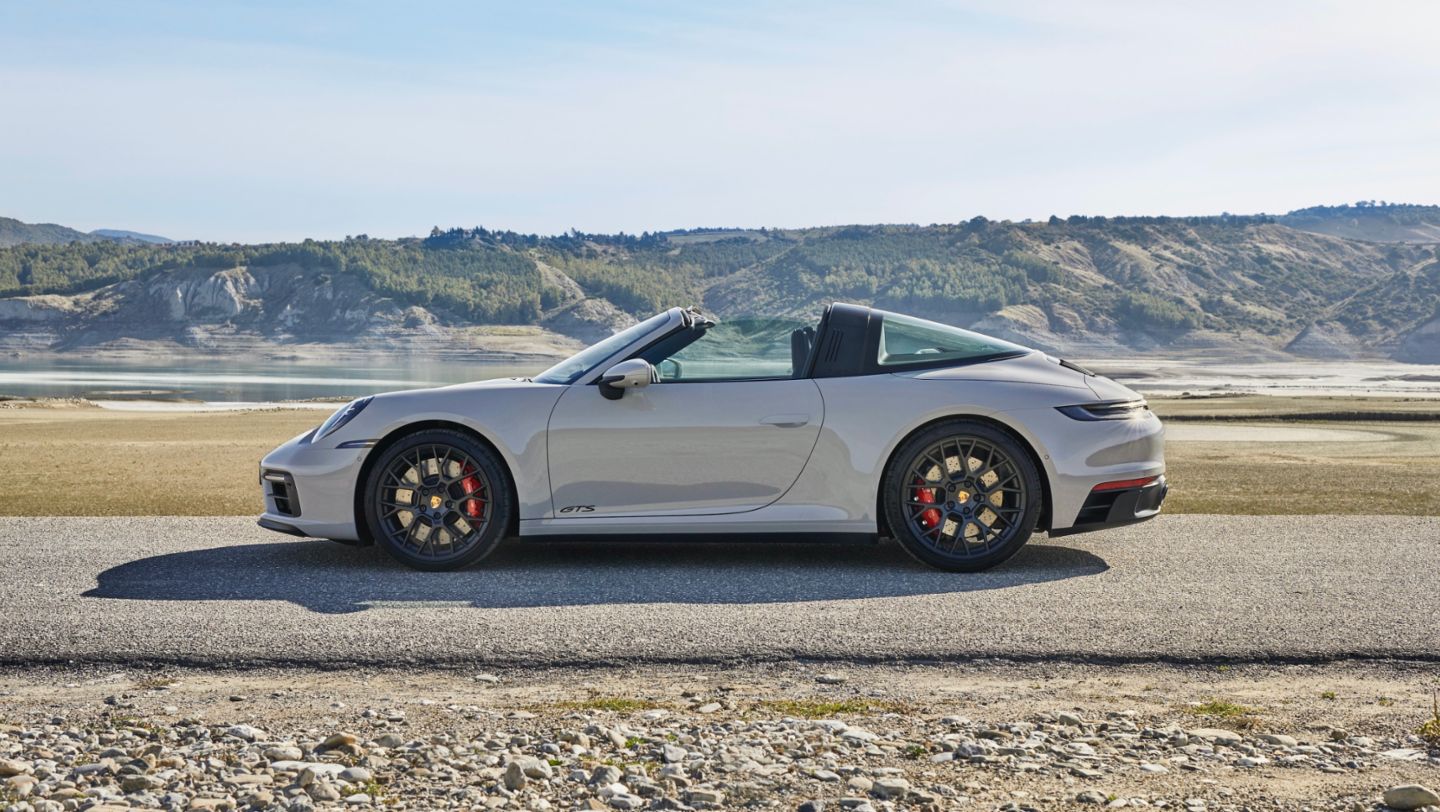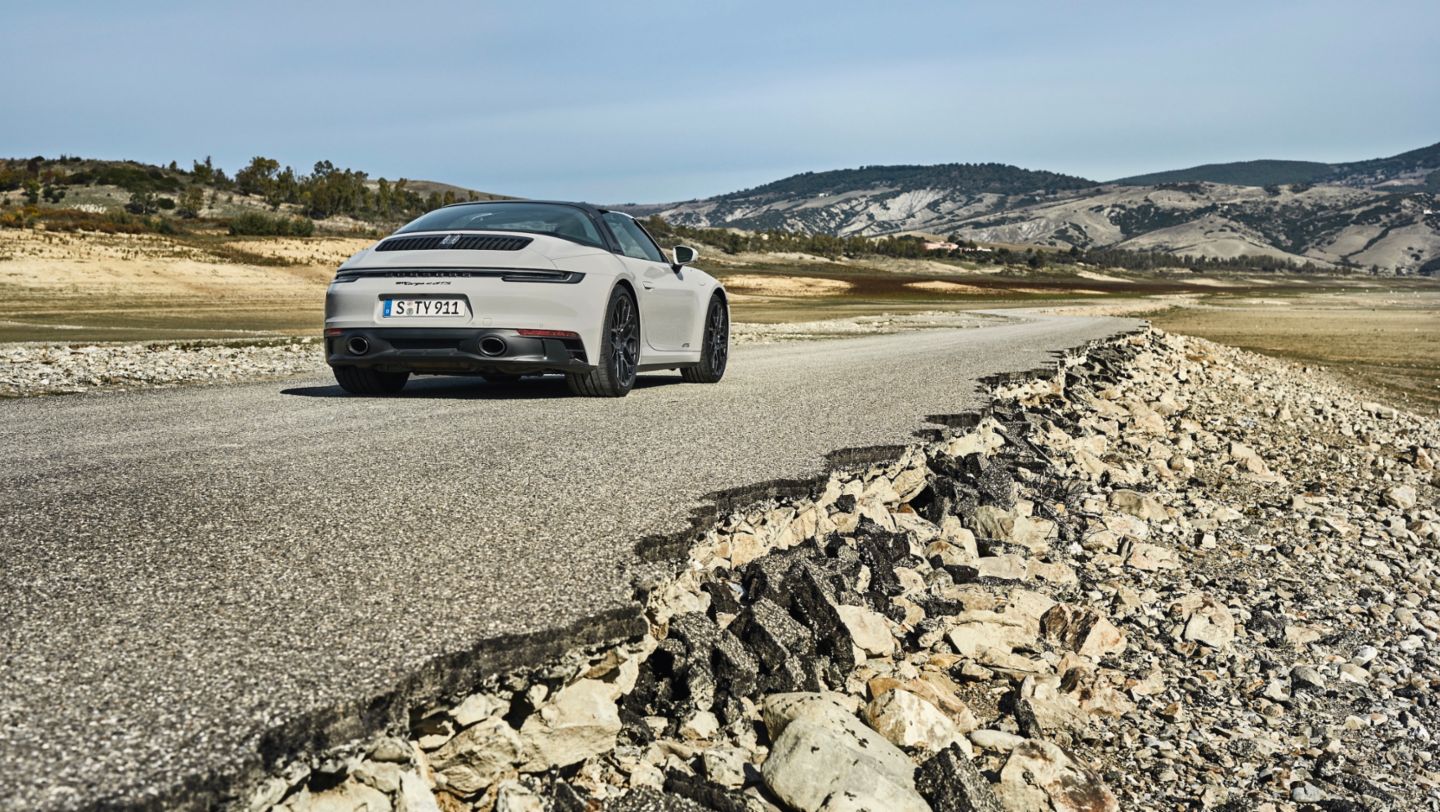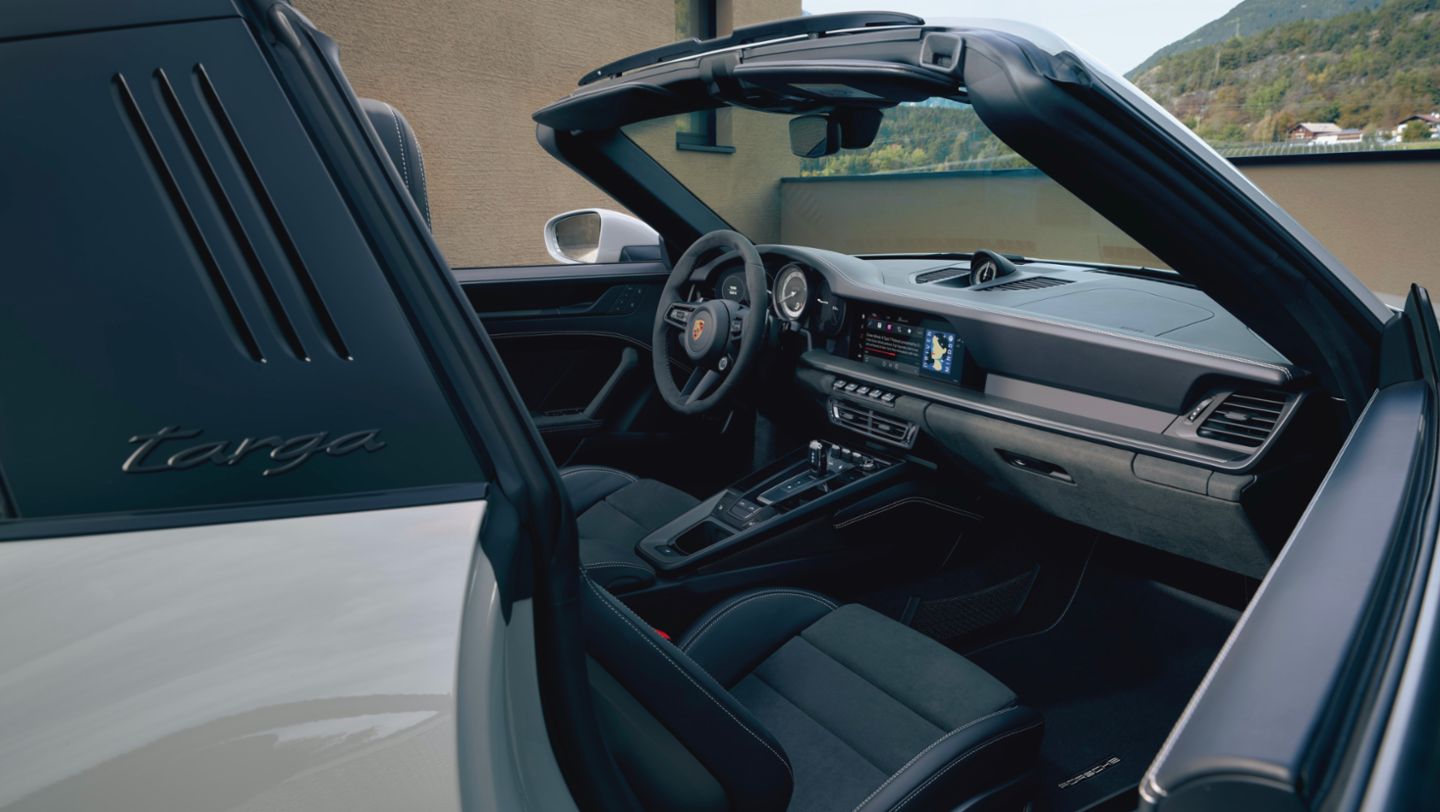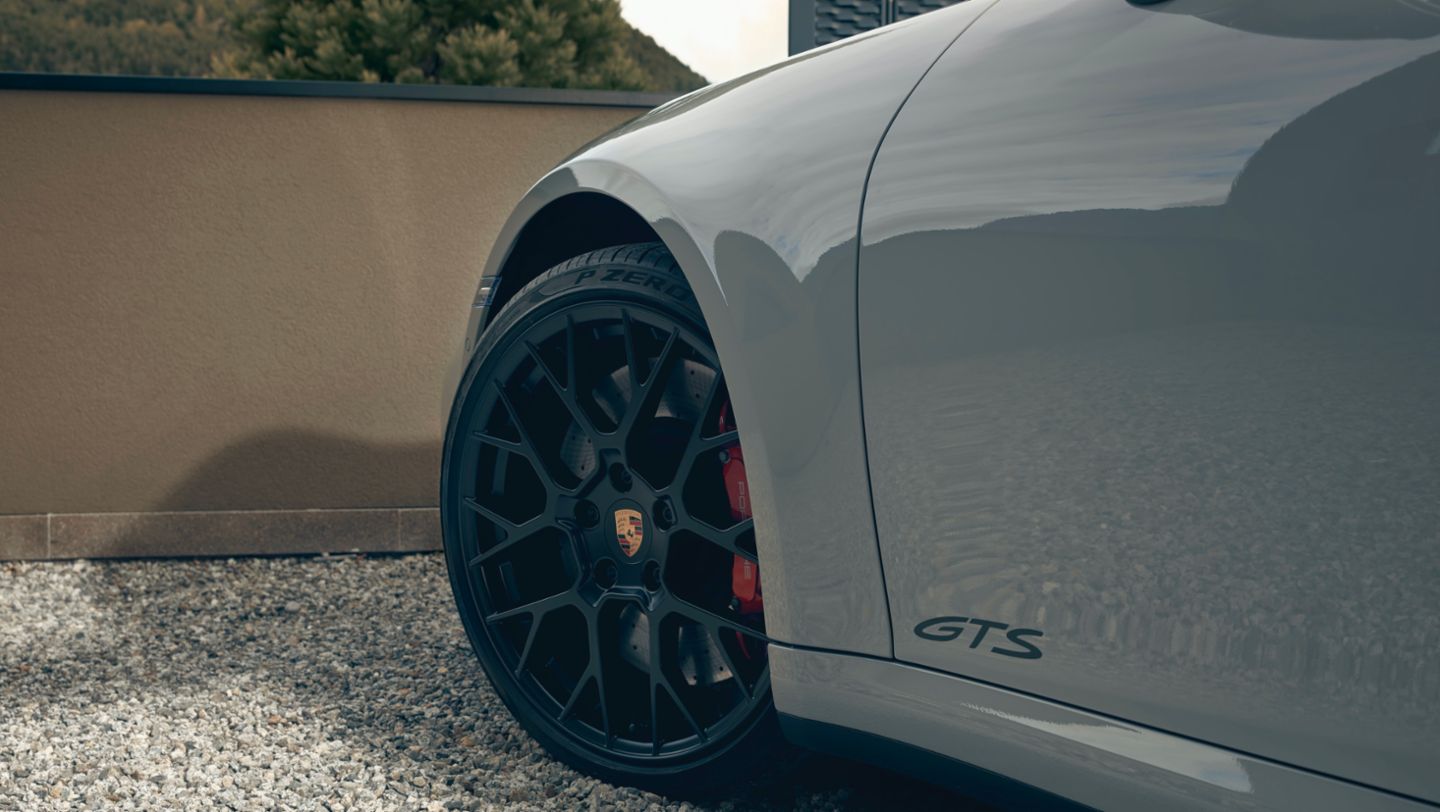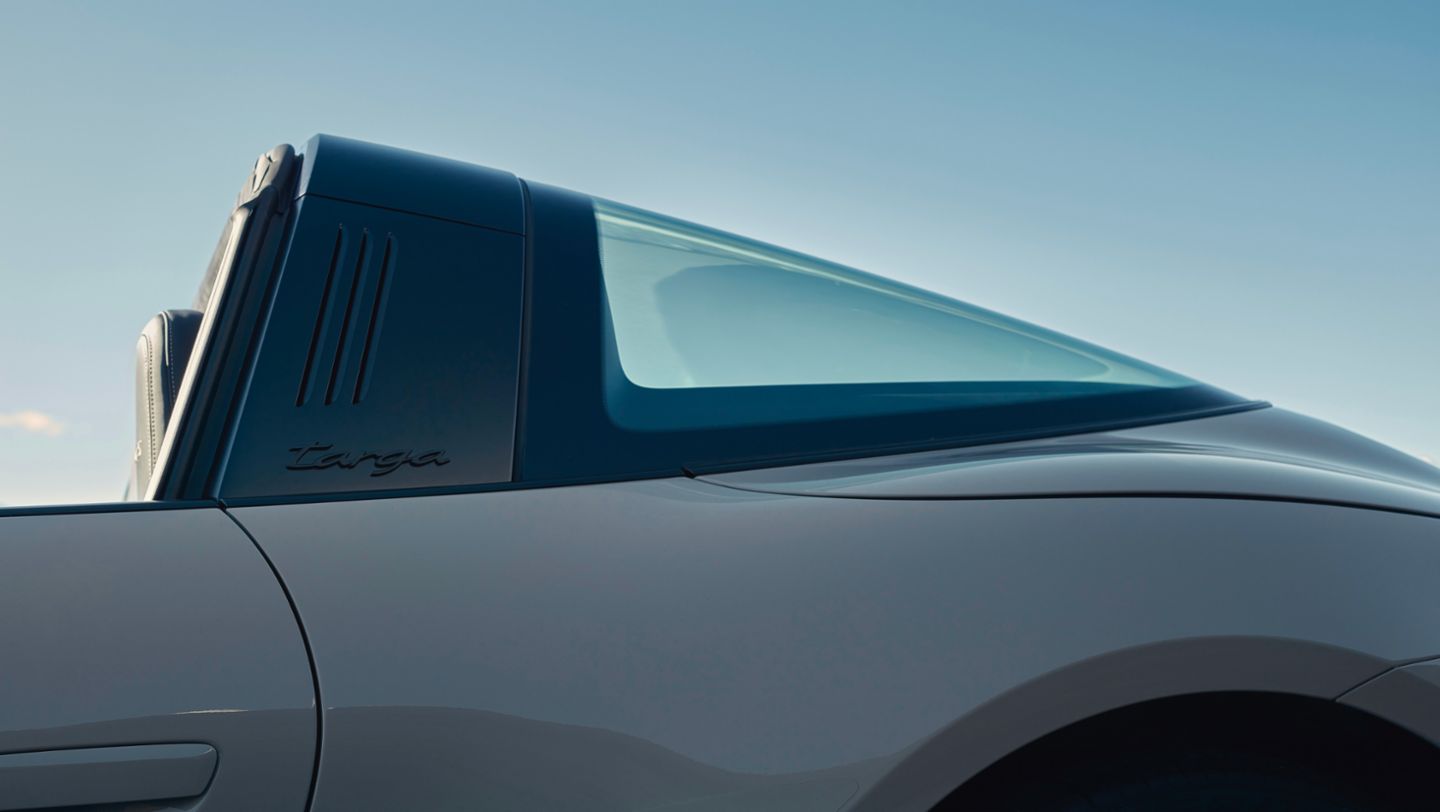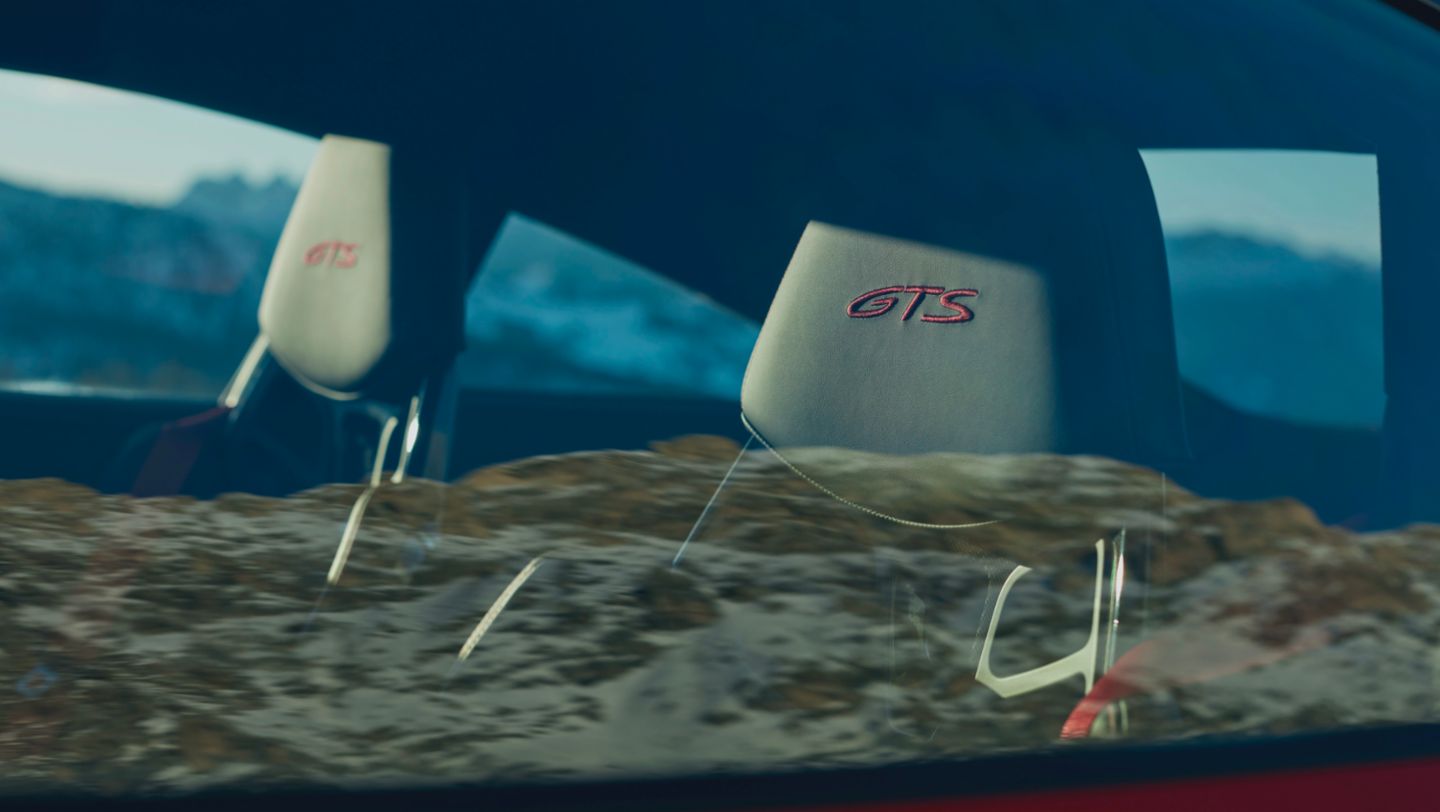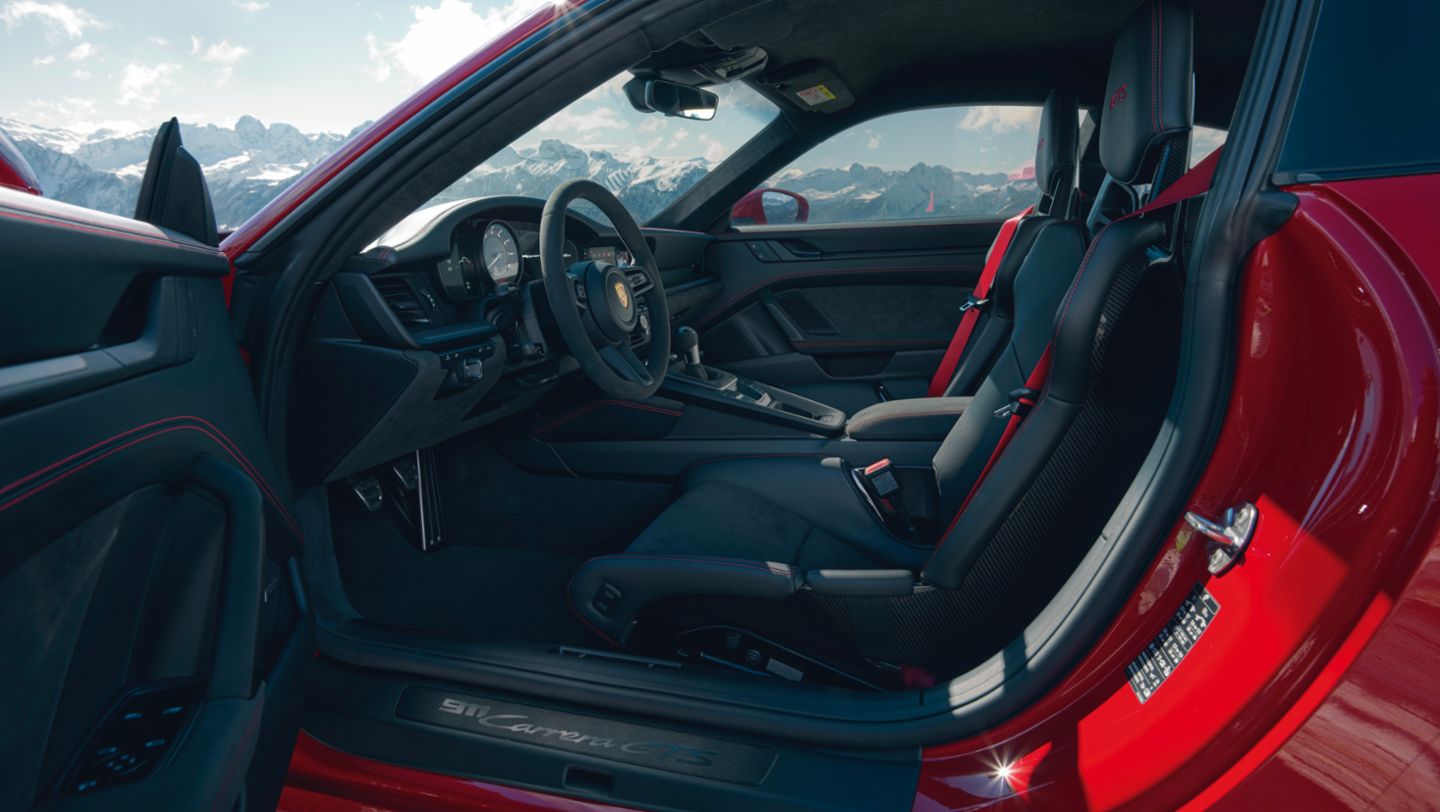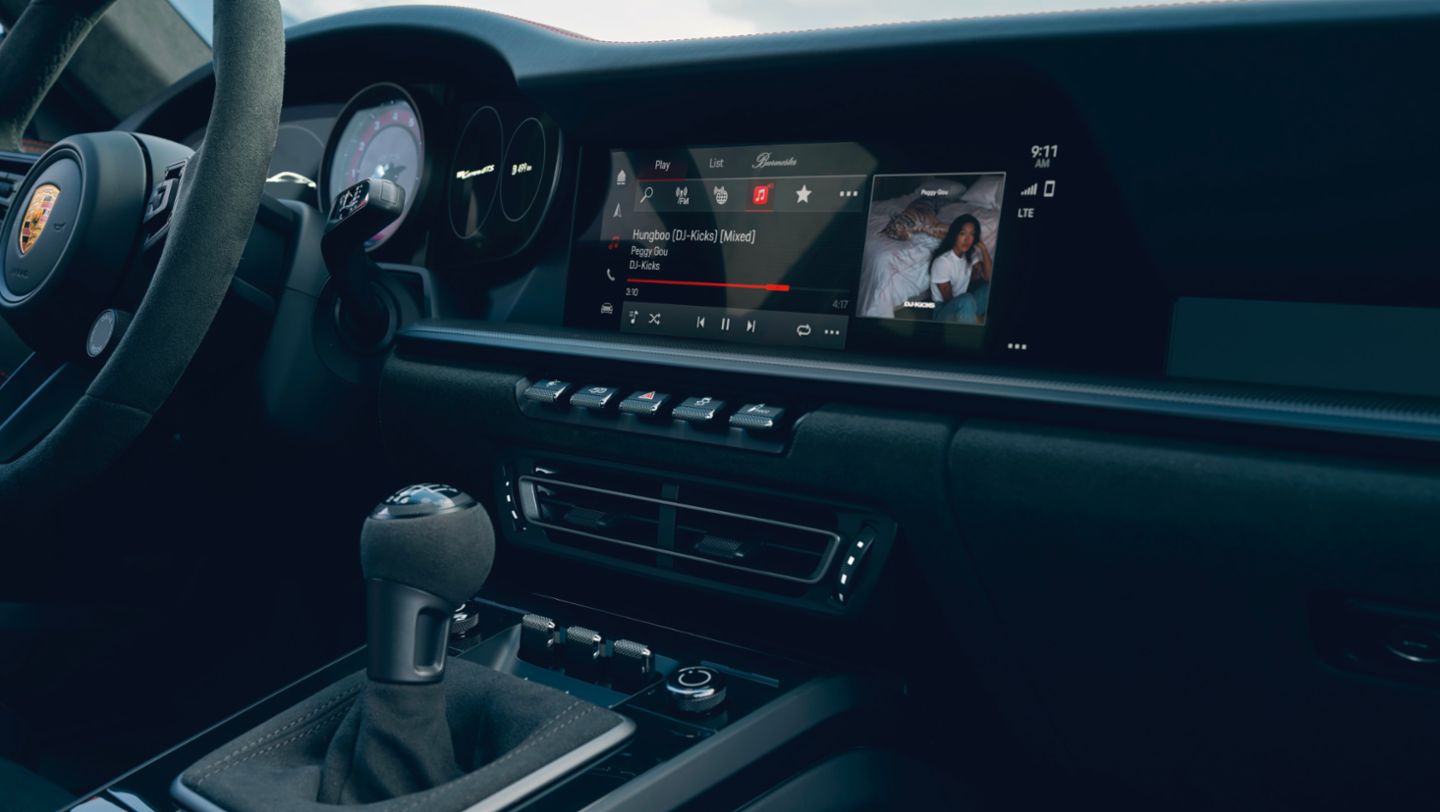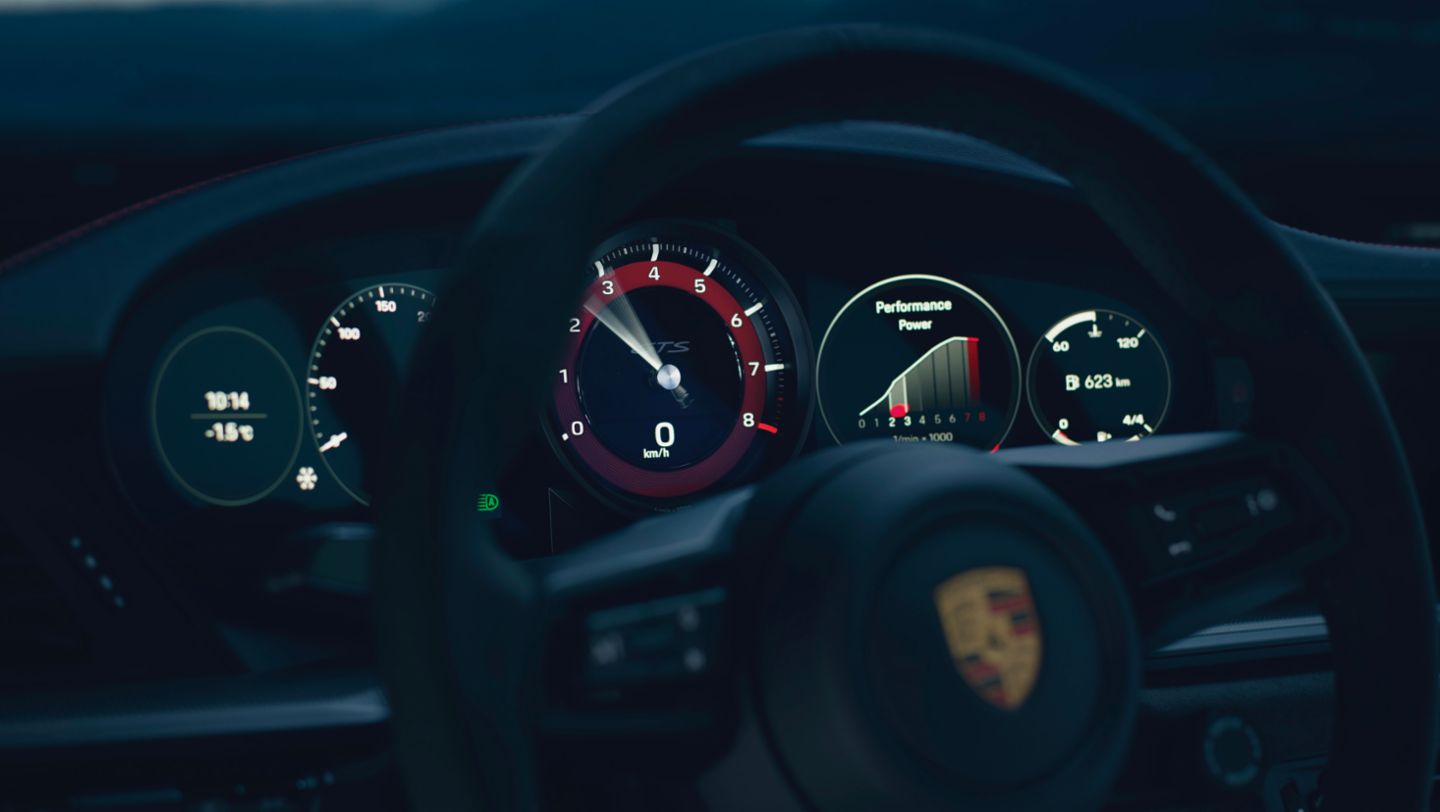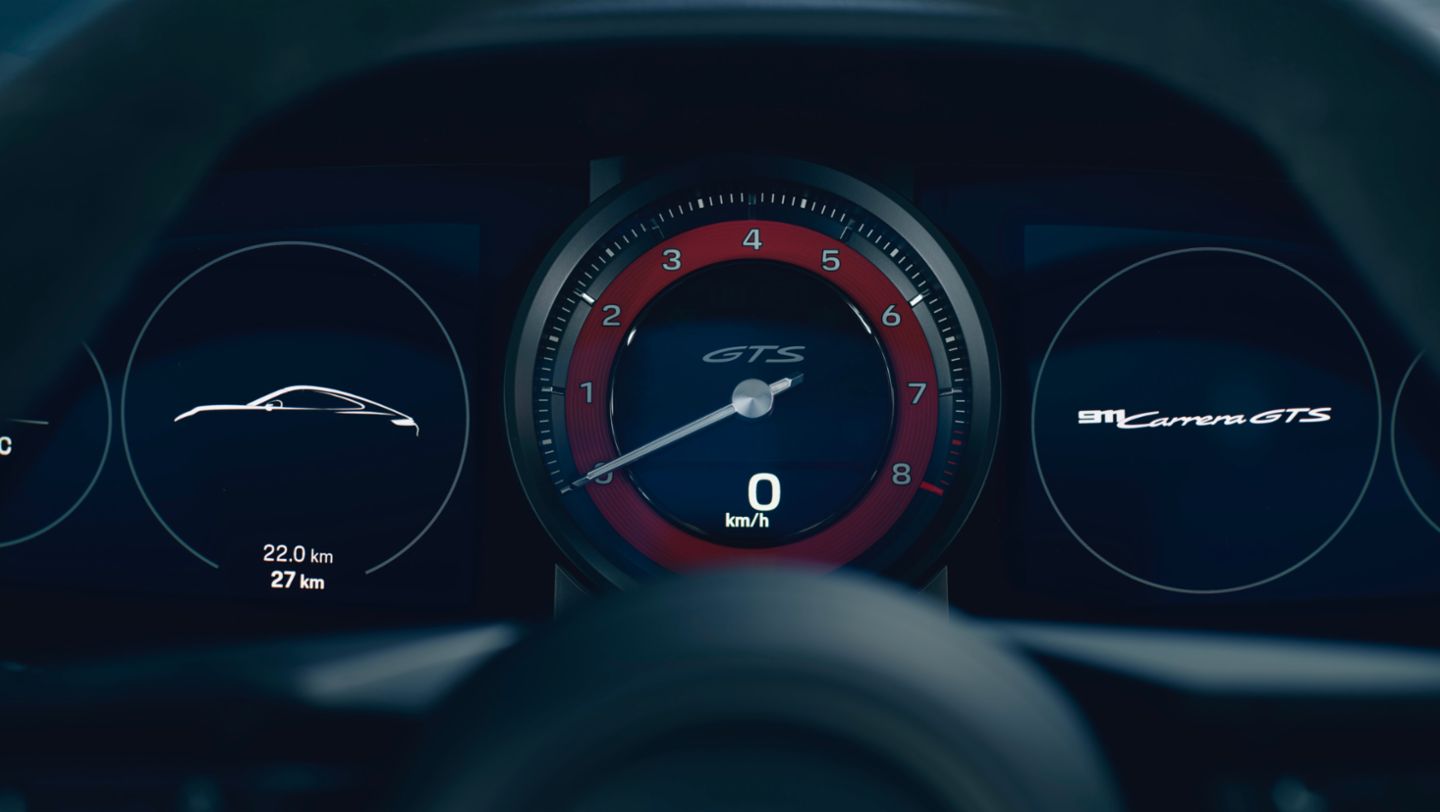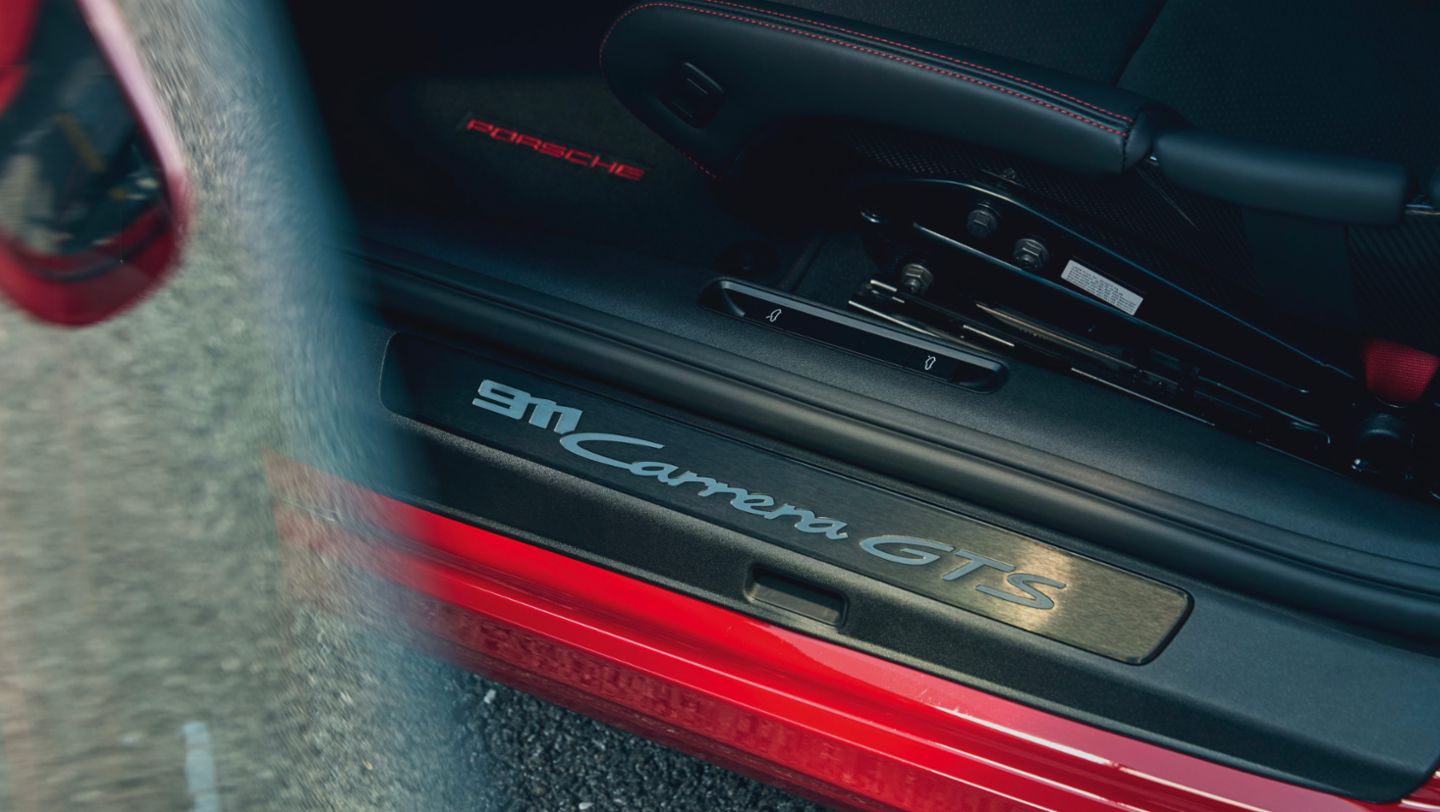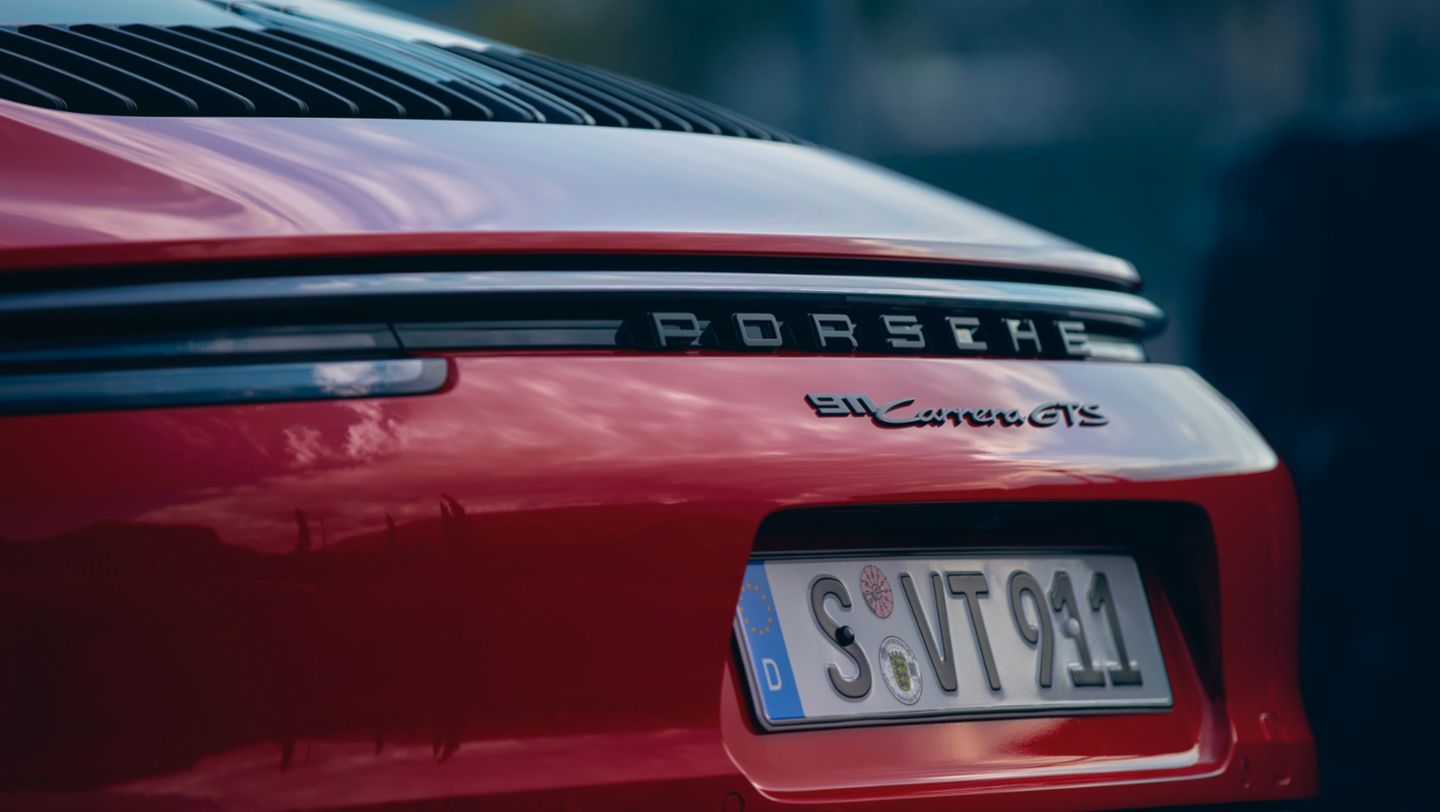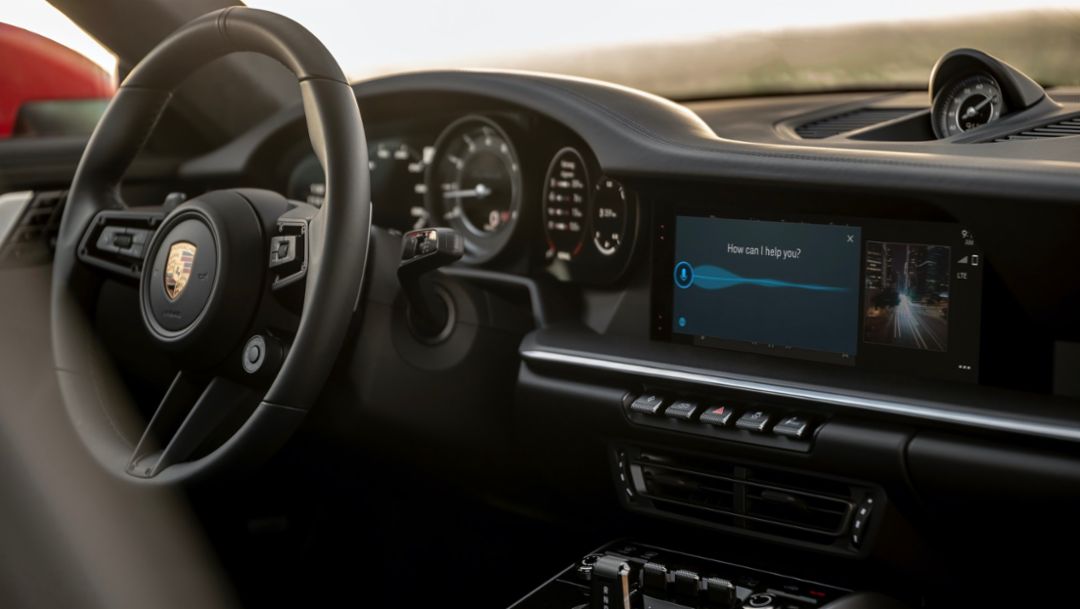Twelve years ago, Porsche introduced the first GTS version of the 911. Now, a new generation of the popular sports car model is being launched – more powerful and visually distinctive, and with better driving dynamics than ever. Its six-cylinder boxer engine delivers 353 kW (480 PS; 911 GTS Models (NEDC): Fuel consumption combined 10.7 – 9.7 l/100 km, CO2 emissions combined 243 – 221 g/km; 911 GTS Models (WLTP): Fuel consumption combined 11.4 – 10.4 l/100 km, CO2 emissions combined 259 – 236 g/km), which is 22 kW (30 PS) more than the current 911 Carrera S (911 Carrera S (Predecessor model)) and the previous 911 GTS. Five model variants are now available.
- 911 Carrera GTS with rear-wheel drive as Coupé and Cabriolet
- 911 Carrera 4 GTS with all-wheel drive as Coupé and Cabriolet
- 911 Targa 4 GTS with all-wheel drive
An eight-speed Porsche dual-clutch transmission (PDK) or a seven-speed manual, as well as GTS-specific suspension with Porsche Active Suspension Management (PASM), and the high-performance braking system from the 911 Turbo, ensure the superior transmission of longitudinal and lateral forces. Driving dynamics will be further improved with the Lightweight Design package, which will be available for the first time for the GTS from November 2021 and saves up to 25 kilograms.
The understated sporty looks of the new models feature black contrasting bodywork elements and darkened headlight areas. Black is also the dominant colour of the interior. Many features made of Race-Tex microfibre create an ambience that is both dynamic and elegant. The latest generation of Porsche Communication Management (PCM) brings numerous improvements in operation and connectivity.
Bespoke suspension and unique sports exhaust system
The turbocharged three-litre flat-six in the new 911 GTS delivers 353 kW (480 PS). Maximum torque is 570 Nm, an increase of 20 Nm over its predecessor. Zero to 100 km/h takes just 3.3 seconds (911 Carrera 4 GTS (Predecessor model)) in the 911 Carrera 4 GTS Coupé with the eight-speed Porsche dual-clutch transmission (PDK): three tenths faster than its predecessor. A seven-speed manual transmission with a particularly short throw is available for all 911 GTS models as an alternative to the PDK.
Its suspension, derived from the 911 Turbo and modified for the GTS, meets exacting performance demands. Thanks to its standard Porsche Active Suspension Management (PASM), the dampers respond to dynamic changes at lightning speed. In the Coupé and Cabriolet, PASM is standard, combined with the 10-millimetre-lower sport chassis. The concept of helper springs at the rear stems from the Turbo models: the main springs are under tension in all driving conditions. Rebound remains the same. The 911 Targa 4 S chassis with PASM is used for the 911 Targa 4 GTS.
The engineers have also adjusted stopping performance to match the increased performance of the GTS, which makes use of the high-performance braking system from the 911 Turbo. The 20-inch (front) and 21-inch (rear) black, centre-lock alloy wheels are from the 911 Turbo. The standard sports exhaust system is responsible for an even more emotive soundtrack, thanks to its GTS-specific set-up and the omission of some interior insulation.
Numerous black accents in silk or high gloss
A multitude of black or darkened exterior details is characteristic of the 911 GTS. On the 911 Targa 4 GTS, this also includes the model-defining hoop and Targa lettering. Additional elements painted in black silk gloss include the spoiler lip, the centre-lock alloy wheels, the engine cover louvres, and the GTS script on the doors and rear of the car. The exterior package, in which these and other details are executed in high-gloss black, can be chosen as an option.
All 911 GTS models effectively have the Sport Design package, with distinctive trim for the front, rear and the side sills. The headlight rims and daytime running light surrounds are darkened, and the car is fitted with standard LED headlights with Porsche Dynamic Light System Plus (PDLS Plus). The rear lights are unique to the GTS models.
Less weight, more downforce
Driving dynamics are further improved with the Lightweight Design package, which will be available for the first time for the GTS from November 2021. Up to 25 kg will be saved by the lighter carbon fibre reinforced plastic (CFRP) full bucket seats, lightweight glass for the side and rear windows, and lightweight battery. The rear seats are also removed. Other performance enhancements include rear-axle steering as standard in this equipment package and additional aerodynamic finishing touches.
Black Race-Tex and standard Sports Seats Plus
The sporty details of the GTS models continue inside – functionally as well as visually. The gear lever of the optional seven-speed manual transmission has been shortened by 10 mm, which enables fast gear shifts with a flick of the wrist. A GT Sport steering wheel as well as the Sport Chrono package with mode switch, Porsche Track Precision app and a tyre temperature display are standard features. The standard Sport Seats Plus with electric four-way adjustment provide lateral support, comfort and convenience. The interior insulation has been reduced, which enhances the emotive driving acoustics.
Numerous Race-Tex features underscore the elegant dynamic ambience. The central sections of the seats, the steering wheel rim, doorhandles and armrests, storage compartment lid and gear lever are all trimmed in the microfibre material. With the GTS interior package, the decorative seams are available in Carmine Red or Crayon as an option. The seatbelts and embroidered GTS lettering on the headrests, rev counter and Sport Chrono clock come in the same contrasting colours. The decorative inserts on the dashboard and door trim are matt Carbon with the GTS interior package.
New display and operating concept now also with Android Auto
The new generation of the Porsche Communication Management (PCM) features additional functions and significantly simplified operation. The touch areas in the Media menu have been enlarged and the option of rearranging the tiles on the homescreen is new. The improved voice assistant recognises natural speech and can be activated with "Hey Porsche".
iOS and Android users will enjoy full connectivity. With Apple Car Play® and now Android Auto, the functions of the corresponding mobile phones can be fully used in the new Porsche 911 GTS models.
